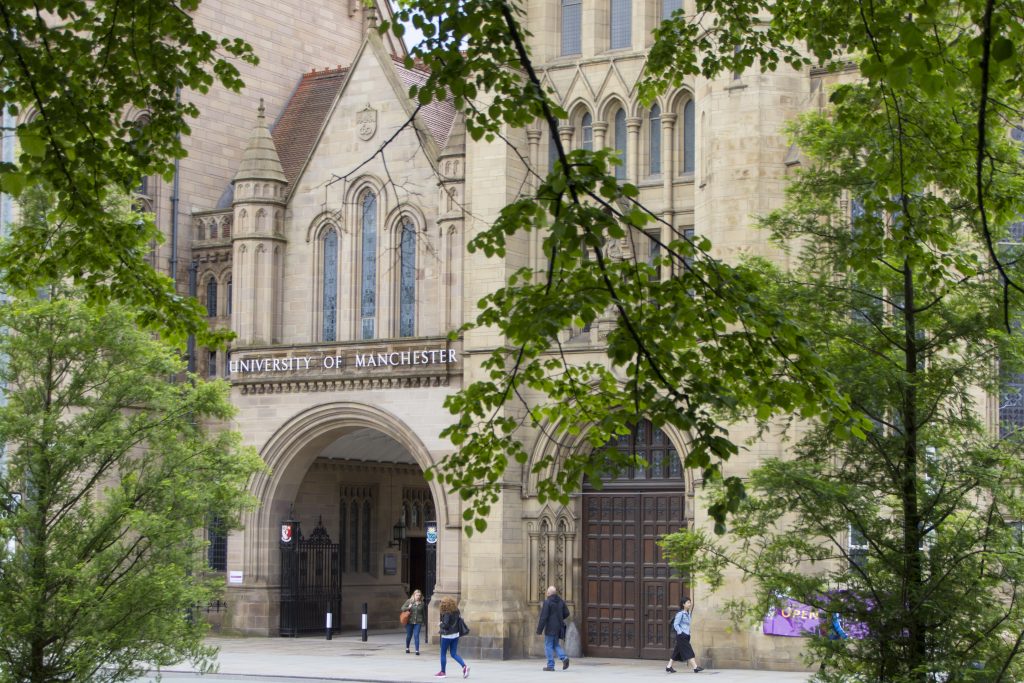
In profile: Stuart Allan
Over the next year, we’ll be posting a series of profiles and blogs featuring members of the Stroke-IMPaCT Network along with updates about the research we’re doing.
The work being undertaken by the Stroke-IMPaCT Network is really exciting, and we want to celebrate and share the work and impact of the network’s members as widely as possible.
For our first profile, Stuart Allan, Professor of Neuroscience and Stroke-IMPaCT Network Lead, has answered a few questions.
Who are you and where are you based?
 I’m Stuart Allan, Professor of Neuroscience at The University of Manchester, UK, where I am also the Academic Lead for the Neuroscience Domain in the Manchester Academic Health Science Centre and Co-director of the recently established Geoffrey Jefferson Brain Research Centre.
I’m Stuart Allan, Professor of Neuroscience at The University of Manchester, UK, where I am also the Academic Lead for the Neuroscience Domain in the Manchester Academic Health Science Centre and Co-director of the recently established Geoffrey Jefferson Brain Research Centre.
At The University of Manchester, I’m one of the Principal Investigators (PIs) in the Brain Inflammation Group (BIG). Our group aims to understand the inflammatory mechanisms in the healthy and diseased brain to reveal novel therapeutic targets.
I teach a number of degree courses at The University of Manchester and supervise the research of many undergraduate and postgraduate students.
Can you briefly describe the research that you do?
The primary focus of my research is inflammation in the brain and examining how this relates to pathologies such as stroke and dementia. Research from my laboratory has shown that stroke causes changes to immune function and inflammation both in the brain and in other compartments such as the blood and bone marrow.
We know that these changes damage the brain in the short and long term and may contribute toward people developing cognitive impairment after having a stroke. Our research has also demonstrated that the immune changes caused by stroke can affect how well a person can fight off infections after stroke.
Understanding how changes to the immune system cause damage to the brain in the short and long term can help us to develop treatments to help improve the outcome of people who have had a stroke. If we can also work out how stroke changes the ability of the immune system to fight infections, we may also be able to find ways to reduce the likelihood of stroke patients developing infections after stroke.
What is your role in the Stroke-IMPaCT Network?
I am the Stroke-IMPaCT Network Lead and the European Network Co-ordinator. My colleague, Marion Buckwalter (Stanford University), is the North American Lead.
Aside from this, my role is similar to the rest of the PIs in the network – we are all responsible for generating new scientific hypotheses, leading and co-ordinating work in our own laboratories, and looking for ways in which we can work together to reveal new and exciting information about stroke, associated immunological changes and post-stroke cognitive impairment.
What are you enjoying most about being part of this network?
The Fondation Leducq Network funding is unique in many ways. In particular, the emphasis on transatlantic and international collaboration means that eight different laboratories are part of the Stroke IMPaCT Network.
It’s fantastic to be actively working with so many other academics who are passionate about the same sort of research, and to be able to openly share ideas and explore common interests to solve pressing scientific questions in the field. The added bonus is that, over time, I’m sure we’ll all become great friends as well as work colleagues.
The range of expertise in the Network also means that we’re able to simultaneously conduct pre-clinical and clinical work. This is really important to me because to improve the lives of patients after a stroke, we, as scientists, need to be able to study what happens to patients as well as conducting pre-clinical research.
In addition, the Network’s funding is for five years. This gives us a fantastic opportunity to do some long-term studies, critical for understanding cognitive impairment which, by nature, is a longer-term process.
Fundamentally, the research being conducted by the Stroke-IMPaCT Network is really exciting. Although the body of knowledge is increasing, relatively little is known about immune-changes after stroke, and longer-term follow up of patients is rarely possible. It can also be difficult to investigate large cohorts of patients and perform investigations at multiple sites.
As part of the Stroke-IMPaCT Network, we’re able to look at how the immune function of about 200 patients change at various times after they’ve had a stroke, and look at how what we see relates to how patients score on clinical tests relating to their memory, function and overall health. These investigations are happening at Salford Royal Hospital (near Manchester) and at Stanford University.
This is a unique and hugely valuable opportunity that I hope will reveal new information about stroke and associated cognitive impairment, which will eventually be useful in helping to treat patients and improve their outcomes after stroke.
What else?
When I have time, I enjoy all sorts of sports (swimming, cycling, football, touch rugby, skiing). I also often visit Scotland, my birthplace, and where my family and many of my friends still live.
I am also extremely passionate about public engagement in science, and over the years my lab and I have developed and run a number of events where we engage with the public and local schools in science-related activities and our research.
Contacting me
I’m always interested in hearing from potential collaborators working in allied research areas or prospective students. If this is you, please get in touch (email: stuart.allan@manchester.ac.uk) or explore the opportunities on my research profile and the BIG Opportunities pages.
You can also follow me on social media (Twitter: @stu_art_here).






0 Comments